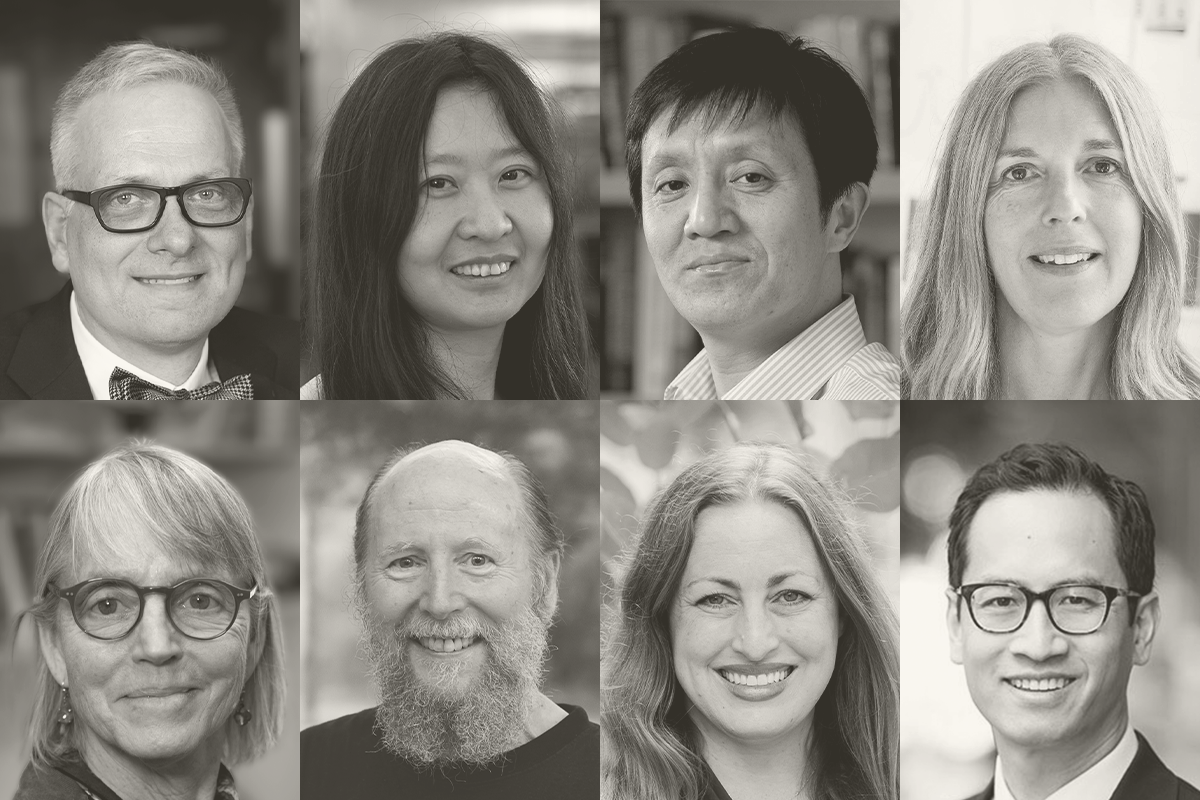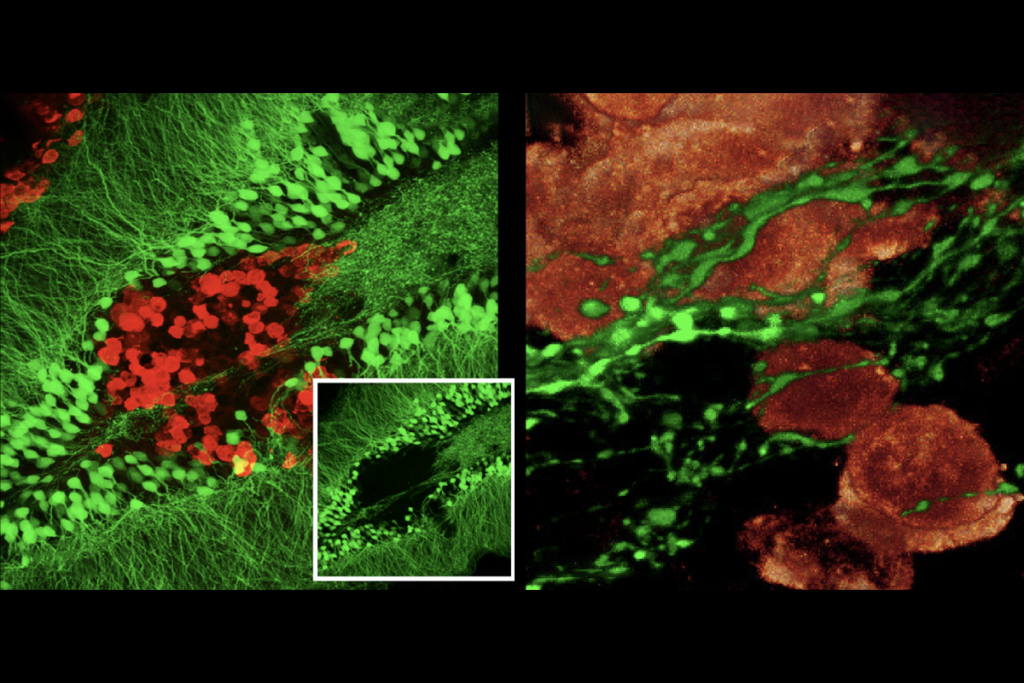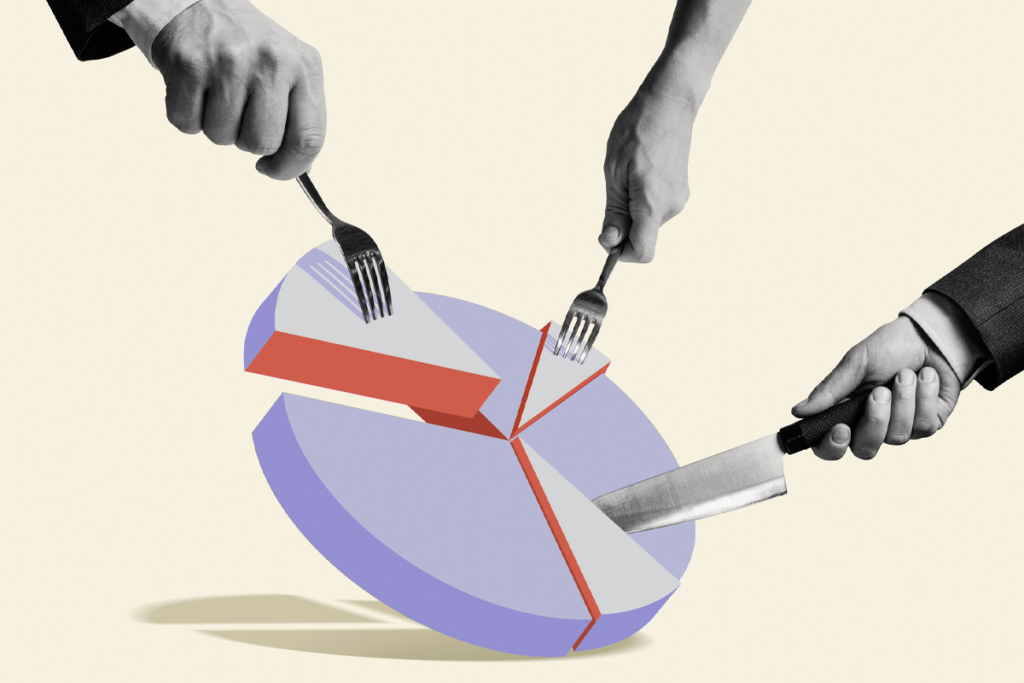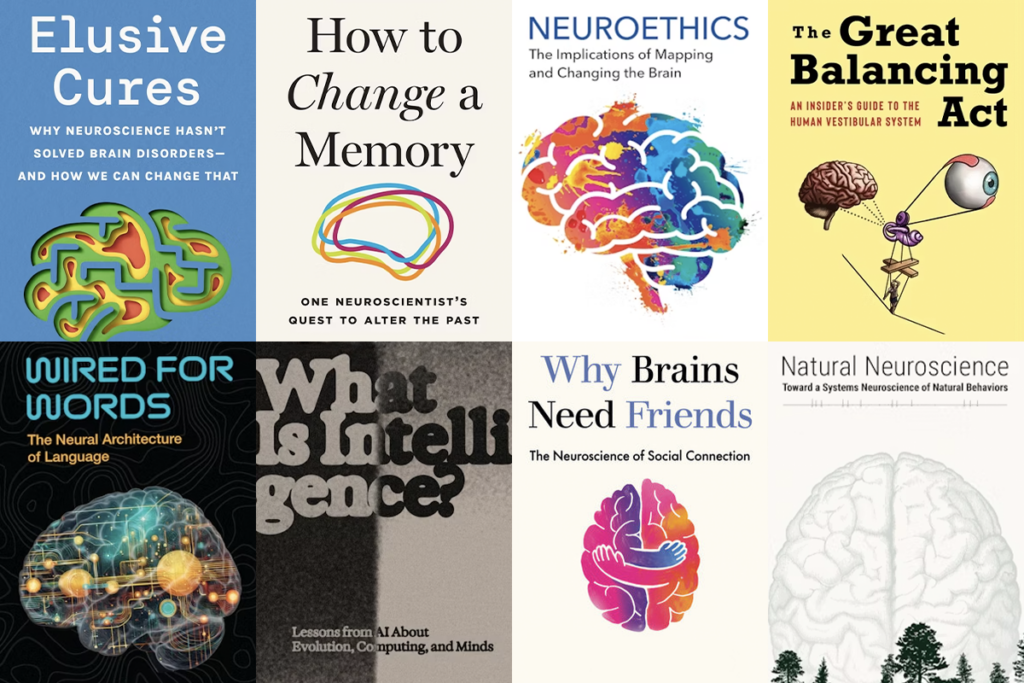Major awards in neuroscience this year have recognized work that investigated neural circuits, led to breakthroughs in brain imaging and unraveled how neural activity facilitates the spread of cancer, among other topics.

Top neuroscience prize winners in 2025
The awards recognize lifetime achievements and new discoveries.
The two winners—Michelle Monje, professor of pediatric neuro-oncology at Stanford University School of Medicine, and Frank Winkler, professor of experimental neuro-oncology at Heidelberg University—independently discovered how neural activity can help cause cancer to spread throughout the brain and body.
Read more:
2025 Brain Prize honors pair of cancer neuroscientists
Making cancer nervous
Neurons fuel lung tumors that have spread to brain
Edward F. Chang, professor of neurological surgery at the University of California, San Francisco, won for his discoveries around the neural coding of speech comprehension and production.
Leslie Vosshall, Robin Chemers Neustein Professor at Rockefeller University and vice president and chief scientific officer of the Howard Hughes Medical Institute, won for her discovery of the neural mechanisms underlying mosquito host-seeking behavior.
Liqun Luo, professor of biology at Stanford University, received the prize for his contributions to our understanding of the development and organization of neural circuits.
Read more:
J. Anthony Movshon, professor of neural science and psychology at New York University, won for synthesizing psychophysics, physiology and computational theory into his vision research. The award also acknowledged his leadership skills.
Andrew G. Barto, professor emeritus of information and computer sciences at the University of Massachusetts Amherst, and Richard S. Sutton, professor of computing science at the University of Alberta, were recognized for developing conceptual and algorithmic foundations of reinforcement learning.
The 2025 Prize was awarded to Gil Rabinovici, Edward Fein and Pearl Landrith Distinguished Professor in Memory and Aging at the University of California, San Francisco, and to William Seeley, Zander Family Distinguished Professor in Neurology at the University of California, San Francisco. Rabinovici won for applying amyloid and tau PET imaging to dementia patients to detect neuropathology. Seeley was recognized for investigating the susceptibility of brain regions to neurodegeneration in disease.
Three pioneers in face-perception research—Nancy Kanwisher, professor of cognitive neuroscience at the Massachusetts Institute of Technology; Winrich Freiwald, professor of neurosciences and behavior at Rockefeller University; and Doris Tsao, professor of neurobiology at the University of California, Berkeley—won the 2024 Kavli Prize for their discoveries of the regions—in both the human and monkey brains—responsible for identifying and recognizing faces. The next Kavli Prize will be awarded in 2026.
Read more:
Ralph W. Gerard Prize in Neuroscience
Joshua Sanes, professor emeritus of molecular and cellular biology at Harvard University, won for his work on the regulation of synaptic development and his contributions to visual neuroscience.
Read more:
What U.S. science stands to lose without international graduate students and postdoctoral researchers
Thanks to new technologies, neuroscientists have more direct access to the human brain than ever before
Why hasn’t genetics taught us more about schizophrenia?
Sanes is also a contributing editor for The Transmitter.
Jacob P. Waletzky Award
Marco Venniro, associate professor of neurobiology at the University of Maryland School of Medicine, won for his work on social behavior and mental health as they relate to addiction.
Julius Axelrod Prize
Gregory Quirk, supervising scientist at the University of the Philippines Manila, won for his work on fear and extinction learning.
Swartz Prize for Theoretical and Computational Neuroscience
Alexandre Pouget, professor of basic neuroscience at the University of Geneva, won for his impact on both theoretical and experimental neuroscience around perception, decision-making and reasoning.
Peter Seeburg Integrative Neuroscience Prize
The 2025 prize went to Sheena Josselyn, senior scientist at the Hospital for Sick Children and professor of psychology and physiology at the University of Toronto. She won for her groundbreaking work on engrams and memory.
Read more:
Sheena Josselyn and memories lost, found and created
On the importance of reading (just not too much)
On fashion in neuroscience: In defense of freezing behavior
Josselyn is also a contributing editor for The Transmitter.
SfN Service Award
Floyd Bloom won posthumously for his nearly 40 years of volunteer service to SfN, including as SfN president from 1976 to 1977.
Read more: Bloom’s obituary in The Transmitter, and also our State of Neuroscience “The leaders we have lost” report.
Recommended reading

Organoid study reveals shared brain pathways across autism-linked variants

Single gene sways caregiving circuits, behavior in male mice

Inner retina of birds powers sight sans oxygen
Explore more from The Transmitter

Neurons fuel lung tumors that have spread to brain

NIH awarded 37 percent fewer neuroscience-related grants in 2025 than in past years
